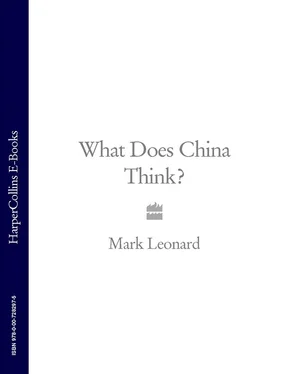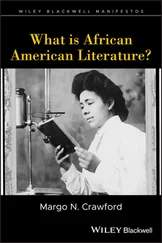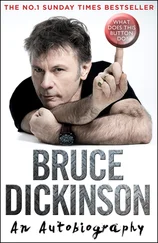For him, the village was a living embodiment of an ‘alternative way’. It showed that the market could be used to finance social welfare; that success could be achieved in the rural communities of inland provinces rather than only on the coast. And it showed how government intervention – to provide health and education – could improve economic dynamism. Today some of the sheen has come off Nanjie, which is increasingly seen as an artefact rather than a model. But even in 1996, Cui Zhiyuan did not think that Nanjie could be universalized. Instead, he argued that it showed how China could survive in market conditions without slashing the wages, terms and social protection of its workers. It was an emblem of an alternative form of capitalism to that practised in the Pearl River Delta, one which I will call ‘Yellow River Capitalism’.
Where Wang Hui speaks slowly and deliberately, Cui Zhiyuan can be exhausting to follow. When he talks his sparkling eyes almost pop out of his head. His delivery is breathless with the enthusiasm of a mad scientist intoxicated by the pursuit of knowledge. As he draws on learned quotations to back up his points, one gets the sense that he is holding the ring for a perpetual argument that is going on in his head between his intellectual mentors: Niccolò Machiavelli, Jean-Jacques Rousseau, John Stuart Mill and James Meade. Cui Zhiyuan is one of the most optimistic members of the ‘New Left’, seeing experimentation as a key to solving China’s problems: ‘The present experience of Russia – and the experiences of developing countries around the world – demonstrate that these countries cannot achieve the wealth, strength and freedom of rich industrial democracies by simply imitating the economic and political institutions of these democracies. They must, to succeed, invent different institutions.’ For the ‘New Left’, the key to the Yellow River Capitalism is a philosophy of perpetual innovation – developing new kinds of companies and social institutions that marry competition and co-operation.
The weakest state in the world
‘Big state bad, small state good’ was the mantra of the economists in the 1980s and 1990s. But the ‘New Left’ team of Wang Shaoguang and Hu Angang has done much to turn that debate on its head. This odd couple – who had a chance encounter at Yale University – emerged as a sort of Lennon and McCartney for ‘New Left’ economics in China. In an influential report in the early 1990s, they argued that the Chinese state had the wrong kind of power: despotic rather than governing. Its ability to restrict the personal freedom of its citizens was second to none. However, when it came to running the country in an effective way, China’s state was one of the weakest in the world.
They showed that central government’s revenue had steadily fallen as a percentage of GDP from 31.2 per cent in 1978 to 14.7 per cent in 1992. As the central state’s budget fell, the income of local governments grew and grew, creating a series of ‘red barons’ in the provinces who used dubious ad hoc charges to line their personal and provincial coffers and increase their power. By the end of the 1980s, the ‘red barons’ had become as powerful as the central government.
For the ‘New Left’, almost all of the problems hampering China’s reforms – corruption, overheating of the economy, bad investment, non-performing loans, low levels of domestic consumption and growing inequality – had come about because the central government was too weak, rather than too strong.
Hu Angang estimates that the combined costs of illegal bribes, tax evasion, arbitrary local charges and straightforward theft add up to a staggering 15 per cent of China’s GDP every year. He shows how, without democratic accountability from below or fear of sanctions from above, provincial leaders put their own interests above those of the people, spending most of their extra-budgetary revenue on themselves and their families: higher salaries, cars, air-conditioning, refrigerators and shiny new office buildings. The solution, according to him, was to centralize the collection of taxes in order to prevent the proliferation of arbitrary charges and to create central institutions to tackle corruption.
The ‘New Left’ made a similar argument about the expensive white elephants such as luxury hotels, skyscrapers, state-of-the-art amusement parks and giant stadiums which local governments have become addicted to building. These unproductive investments, which contribute to an overheating of the economy, are built with money from China’s banks which Deng Xiaoping had freed from central control.
However, their most powerful argument is that a stronger state could help stimulate higher household consumption which currently stands less than 40 per cent of GDP, the lowest of any major economy. The ‘New Left’ claim that China’s model of development is unsustainable because there is a limit to the amount of goods and services that the rest of the world will be able to buy, so China will need to start consuming more of its own products. In the future, China will quite simply need to spend more, and save less. The ‘New Left’ correctly argue that domestic consumption will only rise when Chinese citizens feel less insecure. As long as there is no welfare state to protect Chinese citizens from illness, unemployment or old age they will save their money for the future, rather than spending it as they earn it. The ‘New Left’ claim that only a revitalized central government can provide the social safety net which would give Chinese citizens the confidence to consume. Their words have not fallen on deaf ears. The percentage of central government tax revenue has been gradually increased since 1994, and – rhetorically at least – Hu Jintao and Wen Jiabao have committed themselves to rebuild China’s welfare state.
Protecting public property
‘Property is theft’ has been one of the Left’s favourite expressions ever since Pierre-Joseph Proudhon first coined the phrase in 1840. But while the French anarchist was speaking primarily in conceptual terms, in China it is literally true. The ‘New Left’ talk of a new ‘enclosure movement’ – referring to the way that private landlords grabbed common land in England between the twelfth and nineteenth centuries – that is ripping up China’s social protection system and creating mass inequality. Every week newspapers and websites carry stories of party bigwigs carving up and plundering the nation’s assets under the cover of privatization. Property that was once taken from the rich and given to the peasants is confiscated from farmers and given to developers. Entire villages have been forced off their land to allow property speculators to build new developments; factories have been sold at knock-down rates so that their assets could be stripped and plundered. These cases have seen corrupt officials and crooked businessmen become overnight millionaires while the workers and land-owners whose assets they appropriated received derisory amounts of compensation.
The three letters that have come to symbolize the most brazen pillaging of collective resources are ‘MBO’, short for management buyout. In 2004, a little-known Hong Kong-based academic called Lang Xianping became a national figure when he used his slot on an obscure local Shanghai TV station to investigate and expose some of these abuses. His show caused such waves that Gu Chujun, the chairman of one of the companies that he exposed, took him to court for defamation with a plucky battle-cry ‘I’m fighting for the honour of the entrepreneurs.’ Before Gu Chujun lost his case and was put in prison, the economist Zhang Weiying came to his defence, complaining about the practice of ‘monsterizing and vilifying entrepreneurs’ and arguing that privatization should continue both for reasons of efficiency and principle. He argued that State Owned Enterprises will never take risks because their managers are appointed by bureaucrats; only capitalist entrepreneurs will create new wealth. Even if there are some irregularities in the privatization process, he claimed, it is a price worth paying because China will only be able to develop when the state has retreated from the economy, and its biggest companies are in private hands. Privatization will benefit all.
Читать дальше












